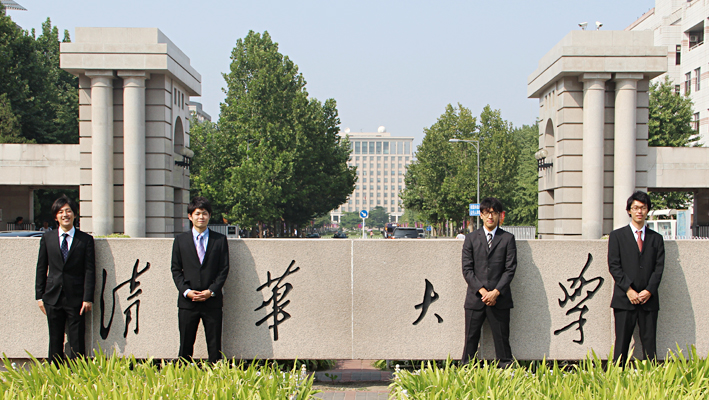For Civil Engineering in China, Tsinghua University is widely regarded as the premier institution due to its academic excellence.
Table of Contents

Criteria for Evaluating Universities
When evaluating universities, particularly for their Civil Engineering programs, it’s essential to take a holistic approach. Here are several key areas to consider:
Faculty Qualifications and Research Contributions
Academic Credentials
- Review the educational backgrounds of the faculty members. Top-tier institutions often have professors who have earned degrees from renowned global universities.
- Assess the specialization of each faculty member within Civil Engineering.
Research Contributions
- Examine the number of papers published by faculty in top-tier journals.
- Look for faculty who have received notable awards or recognitions in the field of Civil Engineering.
Infrastructure and Labs
State-of-the-Art Labs
- Modern and well-equipped labs indicate the university’s commitment to practical learning.
- Presence of specialized labs for various sub-disciplines within Civil Engineering, such as Structural Engineering or Environmental Engineering.
Library and Resources
- Availability of up-to-date books, journals, and digital resources dedicated to Civil Engineering.
- Access to global databases like IEEE Xplore or ScienceDirect.
Curriculum and Course Offerings
Core Courses
- Review the core courses offered to ensure they cover fundamental concepts in Civil Engineering.
- Ensure courses are updated regularly to reflect industry changes and technological advancements.
Elective Specializations
- Availability of specialized electives allows students to dive deep into specific areas of interest within Civil Engineering.
Collaborations and Industry Partnerships
University-Industry Collaborations
- Check for existing partnerships with leading Civil Engineering firms and construction companies.
- Collaborative research projects with industry stakeholders indicate practical exposure for students.
Exchange Programs
- Opportunities for students to study a semester abroad or engage in international research collaborations.
Alumni Success Stories
Career Achievements
- Notable positions held by alumni in renowned construction and engineering firms.
- Alumni contributions to significant Civil Engineering projects globally.
Entrepreneurial Ventures
- Success stories of alumni who have started their Civil Engineering firms or tech startups related to the field.
This detailed evaluation will provide a comprehensive understanding of a university’s standing in the field of Civil Engineering.
Top Civil Engineering Universities in China
| S.No | University Name |
|---|---|
| 1 | Tsinghua University |
| 2 | Peking University |
| 3 | Tongji University |
| 4 | Zhejiang University |
| 5 | Shanghai Jiao Tong University |
| 6 | Harbin Institute of Technology |
| 7 | Beihang University |
| 8 | Tianjin University |
| 9 | Southeast University |
| 10 | Wuhan University |
| 11 | Dalian University of Technology |
| 12 | Beijing Institute of Technology |
| 13 | Chongqing University |
| 14 | Xi’an Jiaotong University |
| 15 | Hefei University of Technology |
Scholarship Opportunities for Civil Engineering Students
Pursuing a degree in Civil Engineering can be financially challenging. Thankfully, there are several scholarship opportunities available to help ease this burden. Here’s a detailed look into the various scholarship avenues:
Government Scholarships
National Scholarship Program
- Offered by the central government, this scholarship recognizes outstanding academic achievements and is available to both undergraduate and postgraduate Civil Engineering students.
Regional Grants
- Various provincial and city governments in China offer scholarships for students hailing from their regions or for those who intend to work there post-graduation.
Specialized Government Programs
- There are specific scholarship programs targeting areas of national interest, such as sustainable construction or urban planning, encouraging students to specialize in these vital sectors.
University Scholarships
Merit-based Scholarships
- Most universities offer scholarships based on academic performance. For instance, students ranking at the top of their class or having significant achievements in national or international competitions can avail of these.
Research Grants
- For postgraduate students or those involved in significant research projects, universities often provide financial support to promote innovative research in the field of Civil Engineering.
Alumni-funded Scholarships
- Many universities have scholarships funded by their alumni. These are often in honor of distinguished alumni or faculty members and target students showcasing exceptional potential.
External Scholarships and Grants
Industry-sponsored Scholarships
- With the boom in the construction and infrastructure sectors, many leading companies offer scholarships to promising students, sometimes with the added incentive of internships or job placements. For instance, global firms like AECOM or Bechtel might collaborate with universities for such initiatives.
International Scholarships
- For students looking to study abroad or participate in exchange programs, there are several international scholarships available. Platforms like Chevening or Fulbright are notable mentions.
Non-profit and Foundation Grants
- Several non-profit organizations and foundations provide scholarships focusing on specific areas within Civil Engineering, like sustainable construction or disaster-resistant infrastructure.
Job Opportunities and Internships
When it comes to Civil Engineering in China, the vast and rapidly developing infrastructure of the country presents numerous job and internship opportunities for graduates. Here are some aspects to consider:
Job Market for Civil Engineering Graduates in China
Infrastructure Development Boom
- China is home to some of the world’s most iconic infrastructure projects, from skyscrapers to bridges and highways, offering a plethora of job opportunities.
Public Sector Opportunities
- Many graduates find roles in government-led infrastructure projects or urban planning departments, helping shape the future of cities and regions.
Private Sector and Consulting
- With the rise of private construction firms and consulting companies, there are many roles for Civil Engineers to design, plan, and execute projects.
Research and Academia
- Leading universities and research institutions in China often hire graduates for roles that contribute to advancements in Civil Engineering, including innovative materials and sustainable construction methods.
Internship Opportunities at Top Construction and Engineering Firms
On-Site Experience
- Many top firms offer internships that allow students to get hands-on experience on live construction sites, understanding the practical challenges and solutions in real-time projects.
Design and Planning Roles
- Interns can work in design departments, using advanced software tools and simulation methods to conceptualize and plan new infrastructure projects.
Networking and Industry Exposure
- Internships often provide opportunities to attend industry seminars, workshops, and conferences, facilitating networking with industry veterans and understanding global best practices.
Global Opportunities for Chinese Civil Engineering Graduates
International Construction Projects
- Chinese construction giants like China State Construction Engineering and China Communications Construction have projects around the globe, allowing graduates to work in diverse cultural and operational settings.
Graduate Programs Abroad
- Many Chinese graduates pursue master’s or doctoral programs in renowned universities overseas, enhancing their global perspective and skills.
Collaborations with Global Firms
- As Chinese firms collaborate with global counterparts, there are increased opportunities for Civil Engineers to work on joint ventures, combining best practices from both sides.
Comparative Analysis with Global Civil Engineering Programs
The global stage of Civil Engineering education is vast, with several renowned institutions leading the charge. When comparing Chinese universities to their international counterparts, a few pivotal aspects emerge:

How Chinese Universities Fare Against Top Global Institutions
Rankings and Recognitions
- Many Chinese universities frequently appear in global rankings, showcasing their academic prowess. For example, institutions like Tsinghua University often rank alongside global giants such as MIT or Stanford in engineering disciplines.
Research Contributions
- Chinese researchers are increasingly seen publishing in prominent international journals, signifying their impactful contributions to the field.
Faculty Exchange Programs
- Many Chinese universities collaborate with top global institutions for faculty exchange programs, ensuring a blend of international and local teaching methodologies.
Infrastructure and Facilities
- The scale and modernity of facilities in Chinese universities often match or even surpass those in other leading global institutions.
Unique Selling Points of Chinese Civil Engineering Education
Practical Exposure to Mega Projects
- China’s rapid infrastructure development offers students unparalleled access to mega projects, from the world’s highest bridges to sprawling urban centers.
Integration of Traditional Techniques
- Chinese Civil Engineering education often integrates traditional construction methods with modern techniques, providing a holistic understanding of the field.
Strong Industry Linkages
- With China housing some of the world’s largest construction firms, students benefit from strong industry-academia collaborations.
Affordability and Value
- Quality education often comes at a fraction of the cost compared to Western counterparts, offering great value for money.

